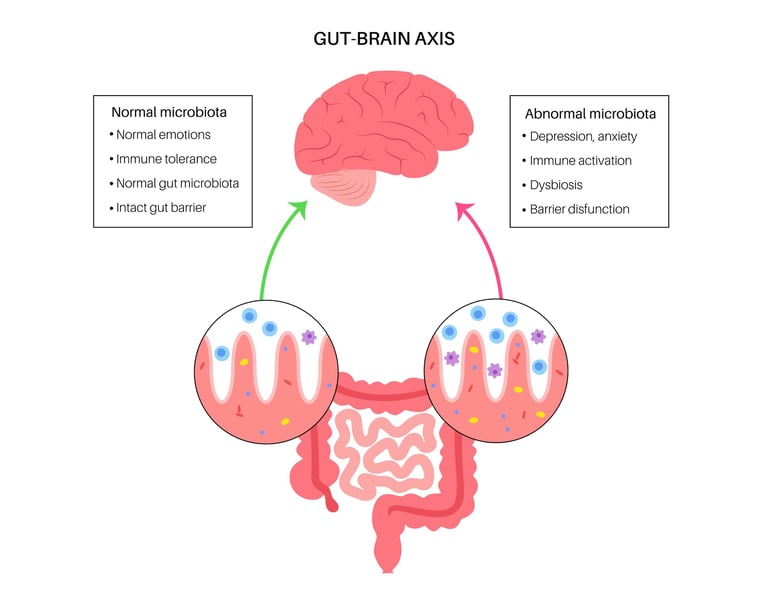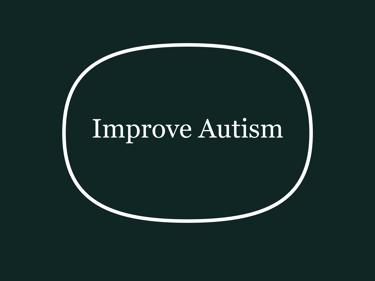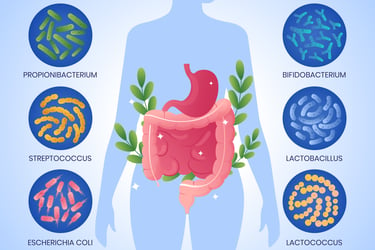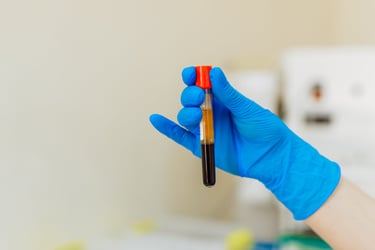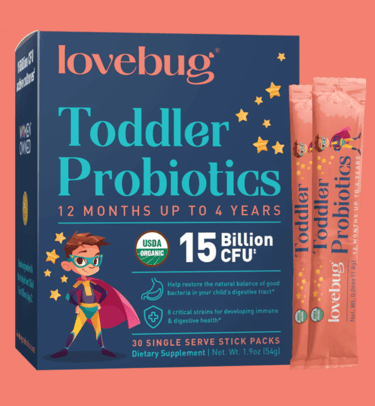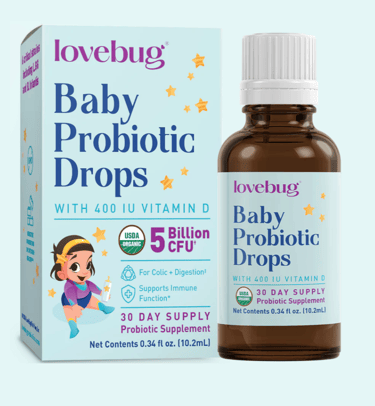Probiotics for Autism
Why should I try probiotics?
How should I give probiotics?
How do you probiotics its work?
Useful tests
Scientific research on probiotics and autism
Probiotics are bacteria which are good for the body. They are typically consumed as premade capsules or powders or as part of the foods we eat such as healthy yoghurts, fermented foods and drinks.
These probiotics play an important role within out body for maintaining the health of our immune system, body and brain. The importance of gut microbiota will be a recurring theme covered in many aspects of this website.
Children with autism often have poor gastrointestinal health related to poor or unbalanced microbiota.
Introducing probotics can help improve microbiota health which inturn can help with autism symptoms.
producing neurochemicals which our brains use and children need for a good brain development
Responsible for helping maintain and develop a good immune system
Play a role in helping protect the intestines from bad bacteria growth
Produce certain vitamins and other chemicals which our body and brain need
The microbiota within the gut are responsible for:
Why try Probiotics for Autism?
A study done by Elisa Santocchi and her group showed that giving sachets of probiotics (De Simone Fomulation) showed significant improvement in social and communication difficulties and core autism symptoms. Children in this study who improved the most were those how did NOT have gastrointestial symptoms(smelly poo, stomach upsets, diahear)[19].
Children in this study who did have gastrointestinal symptoms improved these symptoms. But did not significantly improved autism symptoms[19].


Studies show they help


A Children with no belly upset symptoms improved their autism symnptoms significantly.
A Children with belly upset symptoms improved their gastrointestinal symnptoms significantly but not thier autism symptoms.


A study by Martina Mensi and her team gave children probiotics daily and found 77.1% of children improved their autism symptoms such increased shared attention, reduced stereotyped movements (repetitive behavior), improvement in verbal and non-verbal communication expression and increased independence of daily activities[20].


A the most common improved symptom was shared attention indicating more focused on social interactions.


A study by Manman Niu and team gave probiotics in sachets daily to children and found that 83.8% of them had improvements in their Autism Treatment Evaluation Checklist (ATEC). These symptoms improvements included speech and language communication, sociability, sensory and cognitive awareness, health and physical behavior[21].
86.4% of these children also experienced improvements in gastrointestinal issues such as decreased diarrhoea and constipation[21].






83.8% of children showed an improvement in symptoms such as speech, language, communication, sociability, and cognitive awareness, health and physical behavior.


86.4% of children had a improvement in gastrointestinal symptoms such as less constipation and diarrhoea.
Microbiota and got bacteria play such a complex an important role within our bodies that an imbalance of these good bacteria can cause harm. Just like many other of the solutions to improve autism on this website we try and address this underlying gastrointestinal issue through many approaches.
One of these is introducing good gut bacteria through probiotics.






The microbiota will begin to start producing necessary neurochemicals and return balance to the body and brain


Improved microbiota and neurochemical production from gut can improve autism symptoms.
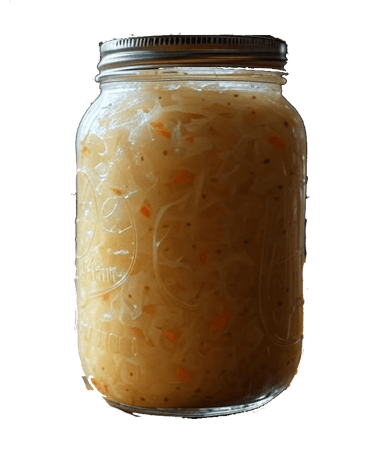







Probiotics are introduced into the diet via fermented foods, probiotic sachets or capsules or liquids.


Probiotics will try to replace bad baceria growth or correct inbalance within the microbiota


Studies show probiotics every day may take up to 6 months to see improvments and many require ongoing probiotic consumption as part of a health diet
How probiotics work in autism










PROS
CONS
Improved functioning social communication, adaptive social skills, and social affect
Reduction in severity of social withdrawal, stereotypic behavior, hyperactivity, and inappropriate speech
Improvements in practical daily living skills, receptive communication, domestic tasks, and coping abilities
Enhanced multisensory processing, which impacts sensory integration and behavior
Improved GI issues like constipation, diarrhea, flatulence, abdominal pain, and stool smell issues
Greater symptom improvements seen in early childhood
Probiotic only helped a some children. Will not effective for everyone
Generally no significant improvement in core autism symptoms for many children but helped with some
Unknown is benefits last over the long term
Continuous probiotic supplimentation can be expensive
Some children experienced temporary diarrhea, belly pain and and irritablilty
Greater symptom improvements seen in early childhood compared to older children
Solutions for Probiotics and Autism
As mentioned in other sections of this website the studies on probiotics and autism required continuous daily probiotic consumption over months to see improvements of gastrointestinal symptoms and autism symptoms such as social skills, multisensory processing and some behavior improvements. These improvements seem to be more significant in early childroon age (2-6 years old) and child with no gastrointestinal(GI) issues[]. In childen with GI issues autism symptoms do not seem to improve that much but GI issues do improve this these children[].
Each of these studies used different types of probiotics but also multiply strains as well. There are thousands of different types of benefical bacterial and to isolate which ones would work best would be very difficult. So we should aim to imroducing known benefical bacteria as well as introduce fermental foods which are known to produce them.
How do I introduce probiotics into my childs diet?
There are different approachs to this. Fermented food or premade capsules or powdered probiotic sachets.












Coconut yoghurt
Tempeh
Natto
Kimchi
Sauerkraut
Cashew yoghurt
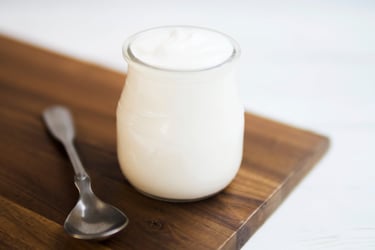

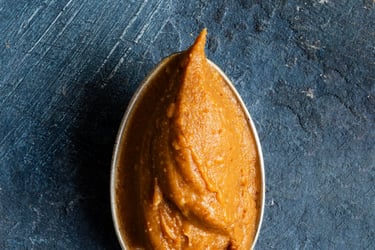

Miso paste
Kefir
For those not trying a casien free diet:
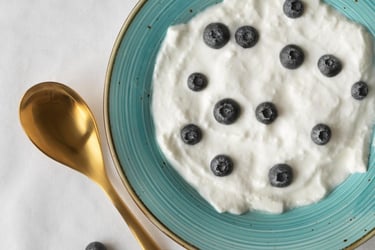

Greek yoghut
Fermented probiotic foods
Premade probiotic suppliments
Liquid probiotic
Powdered probiotic
